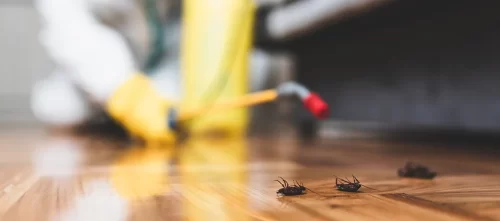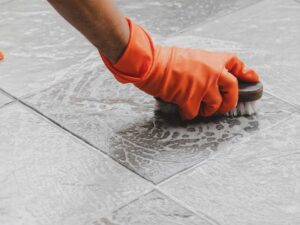Who is Responsible for Pest Control When Renting in NSW?
3 min read
cockroach Pest Control
Renting a property comes with various responsibilities for both tenants and landlords. One crucial aspect to consider is pest control, as pests can cause significant damage and discomfort.
In New South Wales (NSW), it is essential to understand the roles and responsibilities of both tenants and landlords regarding pest control. This article aims to clarify who is responsible for pest control when renting in NSW, particularly in the vibrant city of Sydney. Additionally, we will discuss the importance of pest control in Sydney as a common issue in rental properties.
- Landlord’s Responsibility for Pest Control: In NSW, landlords have a legal obligation to provide a property that is safe, clean, and fit for habitation. This includes ensuring the property is free from pests at the beginning of the tenancy. Landlords are responsible for undertaking any necessary pest control treatments before a tenant moves in. They must ensure that the property is pest-free and in good condition. This responsibility also applies to ongoing pest control measures, such as regular inspections and treatments.
- Tenant’s Responsibility for Pest Control: While landlords are responsible for initial pest control, tenants also have a role to play in maintaining a pest-free environment during their tenancy. Tenants should avoid actions that attract pests, such as leaving food uncovered or creating conditions favorable for pests to thrive. Additionally, tenants must promptly report any pest infestation or signs of pests to the landlord or property manager. By notifying the landlord early, tenants can ensure that appropriate pest control measures are taken promptly.
- Importance of Ant Pest Control: Ant infestations are a common issue in rental properties, including those in Sydney. Ants can be a nuisance, causing damage to food, property, and even electrical wiring. Effective ant pest control is essential to prevent further damage and maintain a hygienic living environment. It is crucial for both tenants and landlords to address ant infestations promptly.
- Reporting Pest Infestations: Tenants should report any pest infestation to the landlord or property manager as soon as it is noticed. Timely reporting allows for prompt action to be taken to address the issue. Landlords must respond promptly to tenant reports of pests and arrange for necessary pest control measures. Failure to address pest issues can result in a breach of the landlord’s obligations and potentially impact the health and safety of tenants.
- Engaging Professional Pest Control Services: In cases where pest control measures are necessary, it is generally the landlord’s responsibility to engage professional pest control services. These services are equipped with the knowledge, expertise, and appropriate treatments to effectively address pest infestations. Landlords should ensure that they hire reputable pest control companies that are licensed and experienced in handling various pests, including ants.
- Ongoing Pest Control Maintenance: Pest control is not a one-time solution. Ongoing pest control maintenance is essential to prevent reinfestation and maintain a pest-free environment in rental properties. Landlords should conduct regular inspections and implement preventive measures to minimize the risk of pests. Tenants should also cooperate by keeping the property clean, disposing of waste properly, and promptly reporting any signs of pests.
Conclusion: When renting a property in NSW, including the bustling city of Sydney, both landlords and tenants have responsibilities regarding pest control. While landlords are primarily responsible for initial and ongoing pest control measures, tenants should actively participate by reporting any pest issues promptly. Ant pest control is crucial due to its prevalence in rental properties. By understanding their respective roles and taking proactive measures, landlords and tenants can ensure a pest-free and comfortable living environment.







